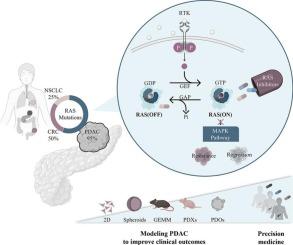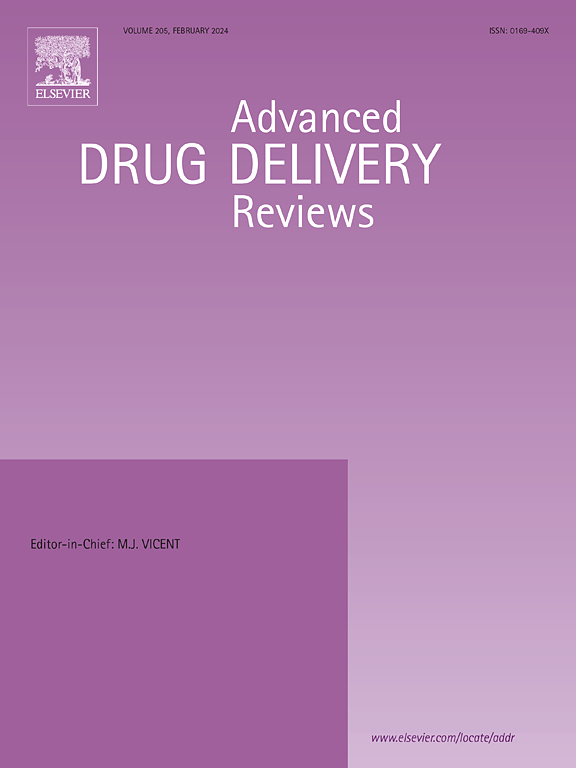胰腺导管腺癌的复杂性:治疗模型和RAS抑制剂的综述
IF 17.6
1区 医学
Q1 PHARMACOLOGY & PHARMACY
引用次数: 0
摘要
胰腺癌是最致命的癌症之一,以预后不良而闻名。目前,治疗不可切除肿瘤的标准是联合使用细胞毒性化疗。到目前为止,针对特定致癌途径的靶向治疗尚未被批准用于临床。大多数胰腺癌病例是散发性/非遗传性胰腺导管腺癌(PDACs),由KRAS癌基因的激活突变引起。在过去的40年里,KRAS被认为是“不可下药的”。然而,许多多选择性和突变特异性的RAS抑制剂正在积极开发中。在这篇综述中,我们提出了PDAC的实验模型,以促进对治疗反应和耐药性的评估。我们还讨论了临床前和临床评估下靶向治疗策略的最新证据,重点是KRAS信号。本文章由计算机程序翻译,如有差异,请以英文原文为准。


Navigating the complexities of pancreatic ductal adenocarcinoma: A review on therapeutic models and RAS inhibitors
Pancreatic cancer is one of the most lethal types of cancer, known for a poor prognosis. Currently, the standard of care for unresectable tumors consists of combinations of cytotoxic chemotherapy. Thus far, targeted therapies against specific oncogenic pathways have not been approved for clinical use. Most cases of pancreatic cancer are sporadic/non-hereditary Pancreatic Ductal Adenocarcinomas (PDACs) and are caused by activating mutations in the KRAS oncogene. For the past four decades, KRAS was considered “undruggable”. However, numerous multi-selective and mutant-specific RAS inhibitors are now under active development. In this review, we present experimental models of PDAC that facilitate studies of response to therapy and drug resistance. We also discuss recent evidence on targeted therapeutic strategies under preclinical and clinical evaluation, with emphasis on the KRAS signaling.
求助全文
通过发布文献求助,成功后即可免费获取论文全文。
去求助
来源期刊
CiteScore
28.10
自引率
5.00%
发文量
294
审稿时长
15.1 weeks
期刊介绍:
The aim of the Journal is to provide a forum for the critical analysis of advanced drug and gene delivery systems and their applications in human and veterinary medicine. The Journal has a broad scope, covering the key issues for effective drug and gene delivery, from administration to site-specific delivery.
In general, the Journal publishes review articles in a Theme Issue format. Each Theme Issue provides a comprehensive and critical examination of current and emerging research on the design and development of advanced drug and gene delivery systems and their application to experimental and clinical therapeutics. The goal is to illustrate the pivotal role of a multidisciplinary approach to modern drug delivery, encompassing the application of sound biological and physicochemical principles to the engineering of drug delivery systems to meet the therapeutic need at hand. Importantly the Editorial Team of ADDR asks that the authors effectively window the extensive volume of literature, pick the important contributions and explain their importance, produce a forward looking identification of the challenges facing the field and produce a Conclusions section with expert recommendations to address the issues.

 求助内容:
求助内容: 应助结果提醒方式:
应助结果提醒方式:


